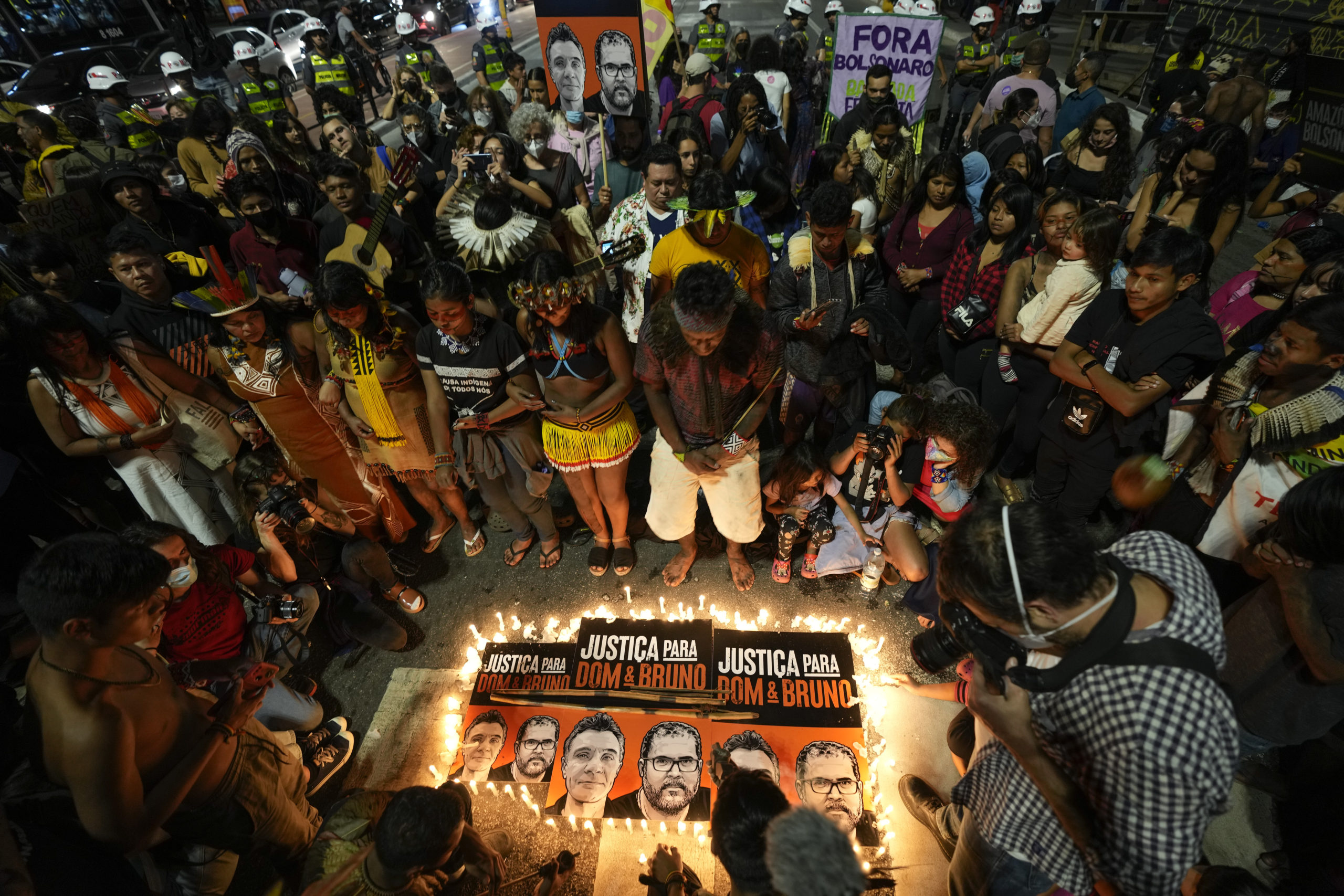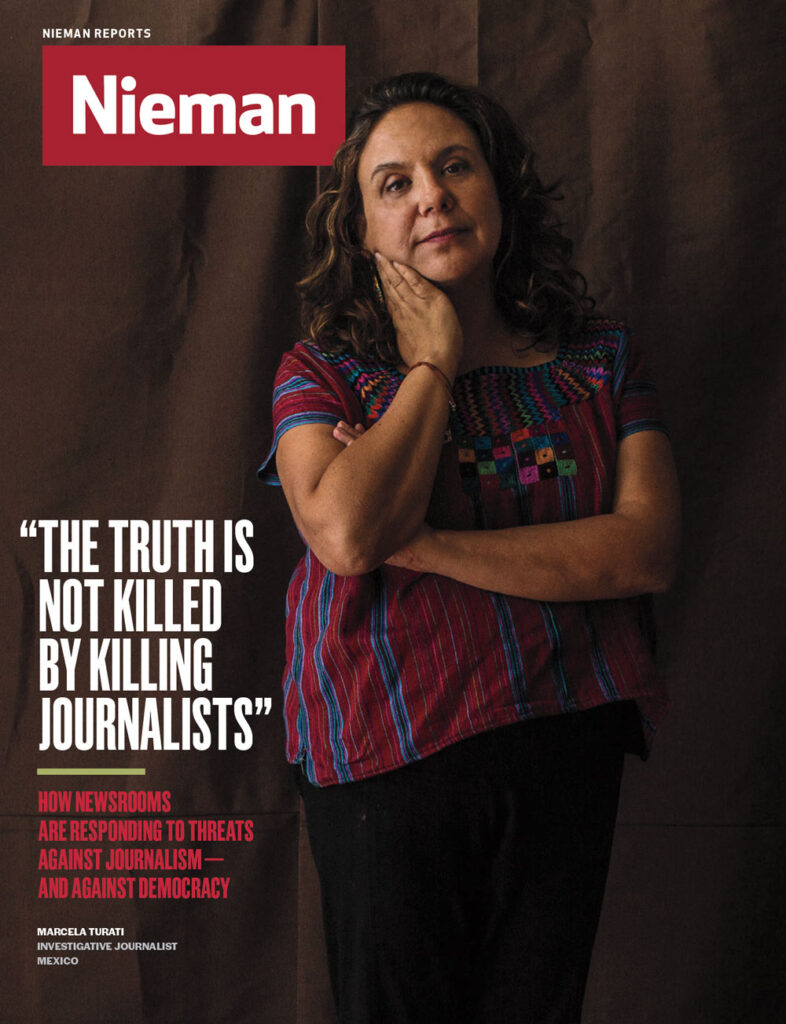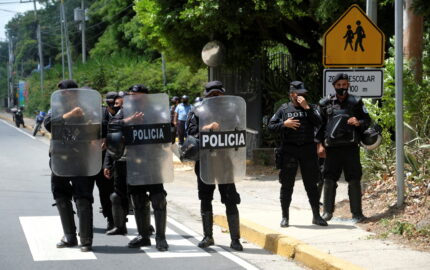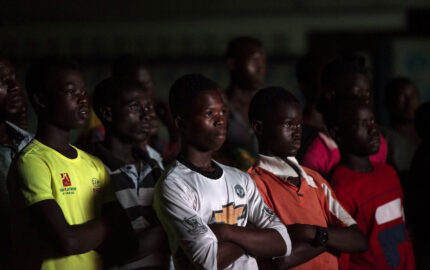"Please never go into the Amazon rainforest again."
The message blinked on my phone right after the news of the disappearance of British journalist Dom Phillips started coming out. Phillips was working on a book in a remote region close to the border between Brazil and Peru. The message came from a friend of mine, a journalist who, like me, had been to the Amazon many times to report. In the spur of the moment, it revealed the anguish we all felt in those days.
Of course, she knew that was a promise impossible to keep. After all, the Amazon is the largest standing forest in the world, one of the key carbon sink systems, and has a vital role to play in world’s efforts to address the climate emergency.
As the destruction of the forest continues, the Amazon has been and will continue to be the biggest story in my country, Brazil.
And yet, the assassination of Dom Phillips and Indigenous expert Bruno Pereira in June was a clear message from the criminals who profit from plundering the forest’s riches: Stay out of the way.
Dom Phillips was doing quite the opposite. A journalist who regularly reported for The Guardian and The Washington Post, he had been living in Brazil for 15 years. In a 2018 article, he recounted a roughly 600-mile expedition in the Indigenous area of Javari Valley, a remote region about the size of Austria. Back then, he had followed Bruno Pereira, an expert from the Brazilian Indigenous agency, Funai, to assess the well-being of isolated Indigenous tribes. The main threat to these peoples and the forest, he reported, were “heavily polluting gold mining barges entering rivers to its east, cattle ranchers encroaching on its southern borders, and commercial fishing gangs venturing deep into its centre.”
In June he went back to that same area — together with Pereira — to seek an answer to a crucial question: How do we save the rainforest? The research was to become a book. But it was interrupted by the same groups threatening the natives whom he had denounced five years earlier.
According to a police investigation, Phillips and Pereira were ambushed and killed by fishermen who practice illegal commercial fishing within the Indigenous reserve. The gang likely has ties to drug traffickers who operate around the border and capitalize on other illegal activities. I will not retell the gruesome details about how they died. Rather, it is crucial to understand why Phillips needed to be where he was, and why the fate of the forest — and of Indigenous peoples — is also the fate of journalists who report on them.
I met Dom Phillips in Rio de Janeiro during the 2016 Olympics. He was an exemplary journalist, kind and generous, and a leader within the foreign correspondent community, which had soared in size ahead of the international sporting event. He reported on the shattered hopes of the population who expected an economic boost but instead faced corruption and massive displacement.
After that, Dom started to dedicate more and more time to covering the Amazon, as global awareness of the climate crisis grew and while cuts to environmental protection budgets meant the Brazilian government was failing in its vow to protect the forest. At Agência Pública, which I co-founded and where I am one of two executive directors, we did the same. During our 10 years of existence, we have relentlessly covered land conflicts, death threats, assassinations, and the relationship between deforestation and organized crime. It’s the job of any investigative reporting project in Brazil.
Dom was a rare journalist in that he had no fear of focusing on what mattered for this moment. A couple of months ago I wrote that while the climate crisis is looming, journalists from the North should start paying attention to reporters and sources from the South. That’s exactly what Dom did.
He witnessed how the election of President Jair Bolsonaro meant that the Brazilian government was not only failing in its actions to protect the forest from illegal miners, illegal loggers, land grabbers, and other criminal gangs, it started deliberately supporting them. He saw when Bolsonaro’s government fired his friend, Bruno Pereira, one of Funai’s leading experts on isolated tribes, whom Dom described in his Guardian piece about their 17-day journey in the Javari Valley as “wearing just shorts and flip-flop as he squats in the mud by a fire” while he “cracks open the boiled skull of a monkey with a spoon and eats its brains for breakfast as he discusses policy.”
Pereira was fired after helping crack down on illegal miners who invaded another Indigenous land in the Amazon. He was quickly replaced by an evangelical missionary, who opened the path to the last unconquered souls in the world’s ongoing Christian crusade. At the same time, Bolsonaro opened the palace in Brasília to illegal miners to put pressure on the lawful protection promised to Indigenous lands in the 1988 constitution. He and his former environment minister, Ricardo Salles, promised to halt the destruction of heavy machinery used by illegal miners, an efficient practice that stops its further use in illegal activities that environmental agencies had used over a decade. Salles is under investigation for using an air force plane to bring illegal miners to his office in Brasília for a friendly talk. In addition, Bolsonaro’s allies in Congress are rolling back environmental regulations and pushing for legalizing mining in Indigenous lands.
Such moves have sent a clear “go ahead” sign to criminal gangs who invade Indigenous lands to rob their resources and often threaten, attack, and murder the natives. As a result, much of the Amazon has effectively become lawless. That does not mean that reporters should not go there; on the contrary, this is exactly when reporters should flock there to monitor, denounce, and let the world know what is happening.
Some observers call the situation a “war on the forest” in which reporters are the latest victims on the frontline. I am wary of comparing anything that is not a war to a war, as I have seen the term used politically by states to militarize situations that should have other solutions — the “war on drugs” being an obvious example.
What is happening in the Amazon is something different. It is a failed state that has allied itself to criminal organizations and, in defending their interests, is actively promoting an assault on the people who live there and the forest that helps regulate the climate in which we all live.
Both Bolsonaro and his vice-president Hamilton Mourão tried to shy away from their responsibility by saying Dom Phillips was in “an area that is dangerous area, without asking for an escort” and “in an adventure that isn’t recommendable for one to do.” Of course, journalism is not an adventure, nor is the Amazon a war zone that requires special access for journalists. It is an integral part of Brazil and neighboring countries, where thousands of people live — in the Javari Valley alone there are 6,000 Indigenous peoples and 16 isolated groups. Their security, as well as the security of any journalist who goes to report from there, must be assured by the Brazilian state.
Unfortunately, what we have seen since the news of the disappearance was victim-blaming and denigration of the jobs of all journalists in Brazil. This official response blends perfectly with Bolsonaro’s repeated attacks on journalists and journalism.
Under Bolsonaro, Brazil has entered the “red zone” in the rankings of press freedom organization Reporters Without Borders, meaning that the situation for press freedoms in the country is considered “very bad.” Bolsonaro’s administration has pursued criminal investigations against at least 12 journalists, columnists, and bloggers. Bolsonaro himself is the biggest bully of journalists. On 147 occasions he either discredited or verbally attacked the press in just one year, according to Brazil’s National Federation of Journalists, from telling journalists to “shut up” during press conferences to suggesting a female journalist was exchanging sex for information. This created an environment in which attacks on journalists are normalized.
Words are powerful. It was the virulent anti-media discourse of Jair Bolsonaro that allowed local criminals to feel free to murder and hide the body of an internationally renowned journalist like Dom Phillips. And we must face the truth. After the media hype is over, the crude killing of Dom Phillips will have a chilling effect on journalism. How can any editor send reporters to the Amazon without fearing for their lives?
I fear. I fear for journalism and for the forest it has such a role in protecting, but also for those who live in it and those who live to tell their stories and amplify their cries for help. With Dom, we all died a little bit.
However, contrary to the desire of the Brazilian government, whose tepid response betrayed a hope that the story would not generate global headlines, dozens of journalists traveled to the very place where Dom was killed. Agência Pública sent four reporters to cover the story. An emergency grant was set up by the Rainforest Journalism Fund of the Pulitzer Center to help this reporting effort.
We need more reporters in the Amazon, not less.
Natalia Viana is a co-founder and co-director of Brazilian investigative journalism Agência Pública, founded in 2011 by women reporters. She is the author or co-author of four books about human rights violations and has won several journalism awards, including the Gabriel García Márquez award in 2016.



